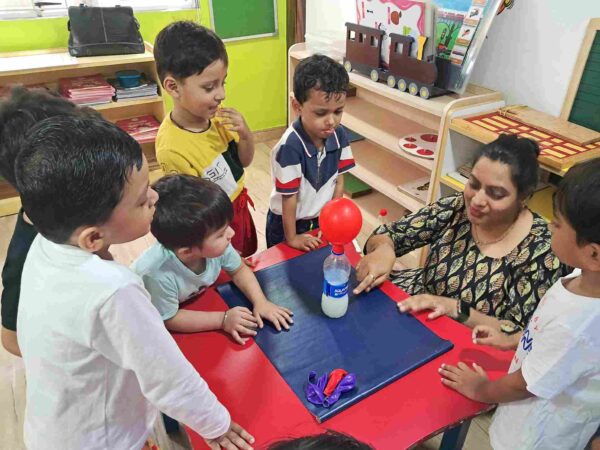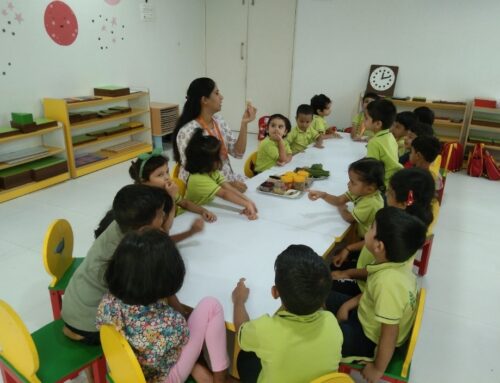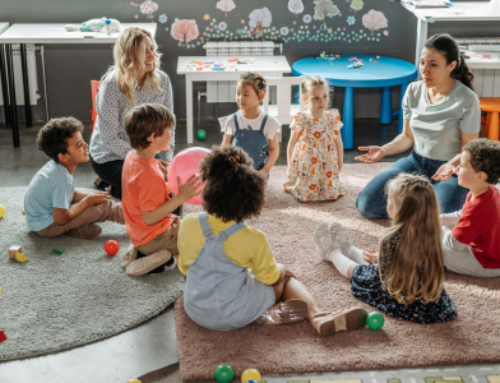Children’s Day is more than a celebration of young ones; it’s an opportunity to reflect on the values we instil in them. At Uudaan Montessori, we believe that teaching kindness and empathy is one of the most important lessons a child can learn. In our Montessori environment, fostering compassion is woven into our everyday activities, guiding children to become respectful, caring, and emotionally aware individuals. This Children’s Day, let’s explore how Montessori methods support the development of these core values in young learners.
Understanding Kindness and Empathy in Early Childhood
Kindness and empathy are foundational to human interactions, shaping a child’s ability to understand others and build meaningful relationships. By introducing these values early on, children grow into adults who can communicate effectively, resolve conflicts peacefully, and contribute positively to society. In Montessori education, the focus on kindness and empathy goes beyond words—it’s an immersive learning experience where children practice, observe, and feel the impact of these values in their daily routines.
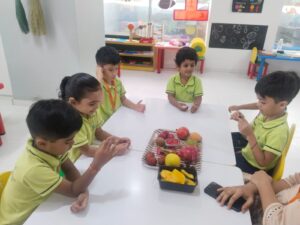
The Montessori Approach to Teaching Kindness and Empathy
- Respecting Each Child’s Individuality In Montessori education, every child is recognized as a unique individual with their learning style, pace, and personality. By honouring these differences, we teach children to respect diversity and value others’ perspectives. When children see that their choices are valued, they develop self-confidence and learn to extend the same respect to others. At Uudaan Montessori, we create an environment where every child feels appreciated, promoting a sense of belonging and mutual respect.
- Encouraging Independence and Responsibility Montessori classrooms encourage children to take responsibility for themselves and their surroundings. By engaging in activities like cleaning up after themselves, taking care of plants, or organizing materials, they learn the importance of contributing to a shared space. This instils a sense of responsibility and an understanding that everyone plays a role in supporting one another. As they practice these habits daily, children learn to be mindful of how their actions impact others, fostering empathy through responsibility.
- Promoting Peaceful Conflict Resolution Conflict resolution is an essential skill taught in Montessori classrooms. Instead of punishing or avoiding disagreements, children are encouraged to express their feelings and listen to others’ perspectives. Through guided discussions, they learn how to solve conflicts peacefully, which helps build empathy. When children can understand and validate others’ emotions, they become more compassionate and aware of how their words and actions affect others. This Children’s Day, let’s appreciate the importance of teaching these invaluable skills that will serve children throughout their lives.
- Using Grace and Courtesy Lessons Grace and courtesy lessons are a central part of Montessori education, teaching children polite and respectful behaviours. These lessons cover greetings, sharing, waiting patiently, and offering help—all of which emphasize the importance of kindness. By practicing these social skills, children learn how to interact positively with others, making kindness and empathy second nature. At Uudaan Montessori, we integrate these practices into daily activities, allowing children to see kindness as a natural way to relate to others.
- Developing Empathy Through Community Activities Montessori classrooms often function as mini-communities where children of different ages work together. This mixed-age setup allows younger children to learn from older ones while older children develop a nurturing attitude towards younger classmates. This mutual exchange fosters empathy as children understand the needs of others and learn to offer support. By encouraging cooperative activities, Uudaan Montessori provides children with countless opportunities to practice kindness within their learning community.
- The Power of Storytelling and Role-Playing Storytelling and role-playing are practical tools used to build empathy in Montessori education. When children listen to stories that depict different perspectives, emotions, and scenarios, they learn to see the world through others’ eyes. Role-playing activities allow them to practice putting themselves in another’s position, which deepens their understanding of empathy. These experiences are impactful, making children more sensitive to the feelings of others in their real-world interactions.
How Parents Can Support Kindness and Empathy at Home
Parents play a significant role in reinforcing the values of kindness and empathy that children learn in Montessori classrooms. Here are a few ways to extend these lessons at home:
- Model Kindness and Empathy: Children learn best by example. Show compassion in your interactions with others, and express empathy when discussing emotions with your child.
- Encourage Open Communication: Create a safe space where your child feels comfortable sharing their thoughts and feelings. This will help them understand and manage their emotions, making it easier to empathize with others.
- Engage in Acts of Kindness: Participate in simple acts of kindness together, like donating toys, helping neighbours, or volunteering. Such activities make kindness a shared experience and teach children the joy of giving.
- Read Stories Together: Choose books that promote empathy and kindness, then discuss the characters’ emotions and choices. This helps children relate to diverse perspectives and develop a deeper sense of empathy.
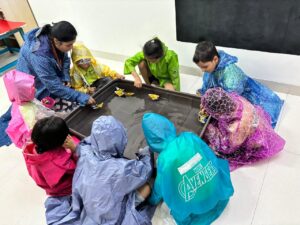
Why Kindness and Empathy Matter More Than Ever
In today’s fast-paced, interconnected world, kindness and empathy are critical life skills. Children who grow up with these values are better equipped to navigate complex social situations, make positive contributions, and build fulfilling relationships. Montessori education at Uudaan Montessori nurtures these values, encouraging children to appreciate and care for the people and world around them.
By teaching kindness and empathy, we’re not only shaping well-rounded individuals but also creating a ripple effect that can transform communities. A compassionate child grows into an empathetic adult, inspiring others to follow suit. This Children’s Day, let’s commit to fostering kindness and empathy in young minds, knowing that each small act of compassion holds the potential to change the world.
Embracing the Montessori Path to a Kinder World
As we celebrate Children’s Day, let’s remember the importance of guiding young ones to be kind, empathetic, and respectful individuals. At Uudaan Montessori, we’re proud to play a part in shaping the compassionate leaders of tomorrow. Through Montessori practices, we teach children that kindness is a way of life and that empathy is the bridge that connects us all. Join us this Children’s Day in embracing a vision of a kinder, more empathetic world, starting with our children.
